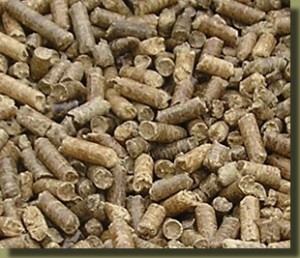Repurpose and Utilize
 There are a vast multitude of ways to repurpose waste within our own communities. This waste is from common everyday processes that occur all around us at any given time, on any given day.
There are a vast multitude of ways to repurpose waste within our own communities. This waste is from common everyday processes that occur all around us at any given time, on any given day.
These non-products of daily occurrences must be dealt with in some manner. Often times these detrital objects are sent, unused, to the landfill where they will take up valuable resources, space, and potentially create problems in the future.
Without looking at these wastes directly we can appreciate the amount of time and energy that are afforded to dealing with them. From the end back to the beginning there are benefits to finding new ways to repurpose this waste.
Much of this waste is considered worthless and sent to the landfill because no commercially beneficial way has been developed for large corporations to handle processing them. Small business and community however can readily benefit from repurposing these leftovers into something that has value at many levels.
Repurposing by products that would end up in the landfill not only save the resources to gather, transport, process, and place them in a landfill but reduces the manufacturing resources for products that fill those initial needs.
Byproducts that are used to create new products save the fuel and labor that would otherwise go to waste. At the front end, they save new resources from becoming a redundant source of product. Producing products from waste saves resources both on the front end and disposal in many forms.
One very common everyday leftover item is coffee grounds. Millions of cups of coffee are brewed daily around the world. It is true that coffee will biodegrade if it is placed in an average landfill. Being such a readily degradable commodity might bring questions about whether or not it is worth the time and energy to repurpose.
Coffee grounds can be amassed in good quantities from a variety of small and large cafes and coffee houses. Everyday a steady supply of coffee grounds are produced waiting to go to the landfill and at best, compost heaps in eco-wise homeowners backyards. Some might end up as a top dressing for a garden to add some acidic properties to a few acid loving ornamental shrubs. By and large, however, it will end up taking up space in a landfill.
Suppose instead that we take these coffee grounds and use them to heat our homes. Instead of buying dried and baked clay to absorb oil in our driveways, we used coffee grounds that are waiting to go to the landfill anyway.
With even this simple idea it might be argued that it is still going to the landfill and nothing has been accomplished. It cannot be overlooked that we did not need to use fossil fuels to heat a house, and baked clay mined thousands of miles away was not shipped to us and used to clean up an inconvenient mess on our patio.
Simple ways to save resources and to repurpose byproducts abound within arms reach if one were to take time to realize their worth. It is true that some time and effort must be put into the thought and research of doing so though.
Lawn clippings, leaves, and a multitude of other seemingly mundane items are sent needlessly to the landfill or to be composted to be buried in our own yard under the idea of bettering our garden soil. One can readily better their garden soil with a few short moments a day and save the energy and effort that was wasted turning a worthless product into a commercially available product. Simply using waste from your kitchen can easily replace those resources and save the waste.
Those same lawn clippings, leaves, and other yard waste items could be turned into useful products and even feed for your chickens. Less useful waste could be used for making compost and all the associated fuel and maintenance on our roadways and infrastructure could be saved. Instead of neglecting the useful properties that these substances contain, reuse them. It is worth the time spent researching and experimenting with processes to deliver a good usable product from wastes available right in our community.
These lawn wastes and coffee grounds could readily be used for a multitude of new purposes from cleaning up spills around the home, to feeding our chickens, and actually heating our homes. It takes thought and energy to turn waste into a useful product, but in the end it will return its dividends and more than pay for itself.
Gain must not always be measured in monetary means, because monetary gains are not the full appreciation of what a real product’s’ actual cost is. The coffee grounds might be worth little to nothing, but the actual cost of them is realized when you look at the farmer that grew them, the oil spent shipping them here, and the energy that went into them being roasted and ground. Countless hours of lighting and air conditioning running in a coffee shop must be taken into consideration as well.
When looking at the cost of doing business, disposing of the grounds, and the other related costs that are incurred throughout the entire process of making coffee grounds, a much greater price is incurred on the people and the environment that produced the coffee grounds. Make the most out of the coffee grounds, because they are not as cheap and worthless as they initially seem.
 Hobby Poultry A Chicken in Every Yard
Hobby Poultry A Chicken in Every Yard 



